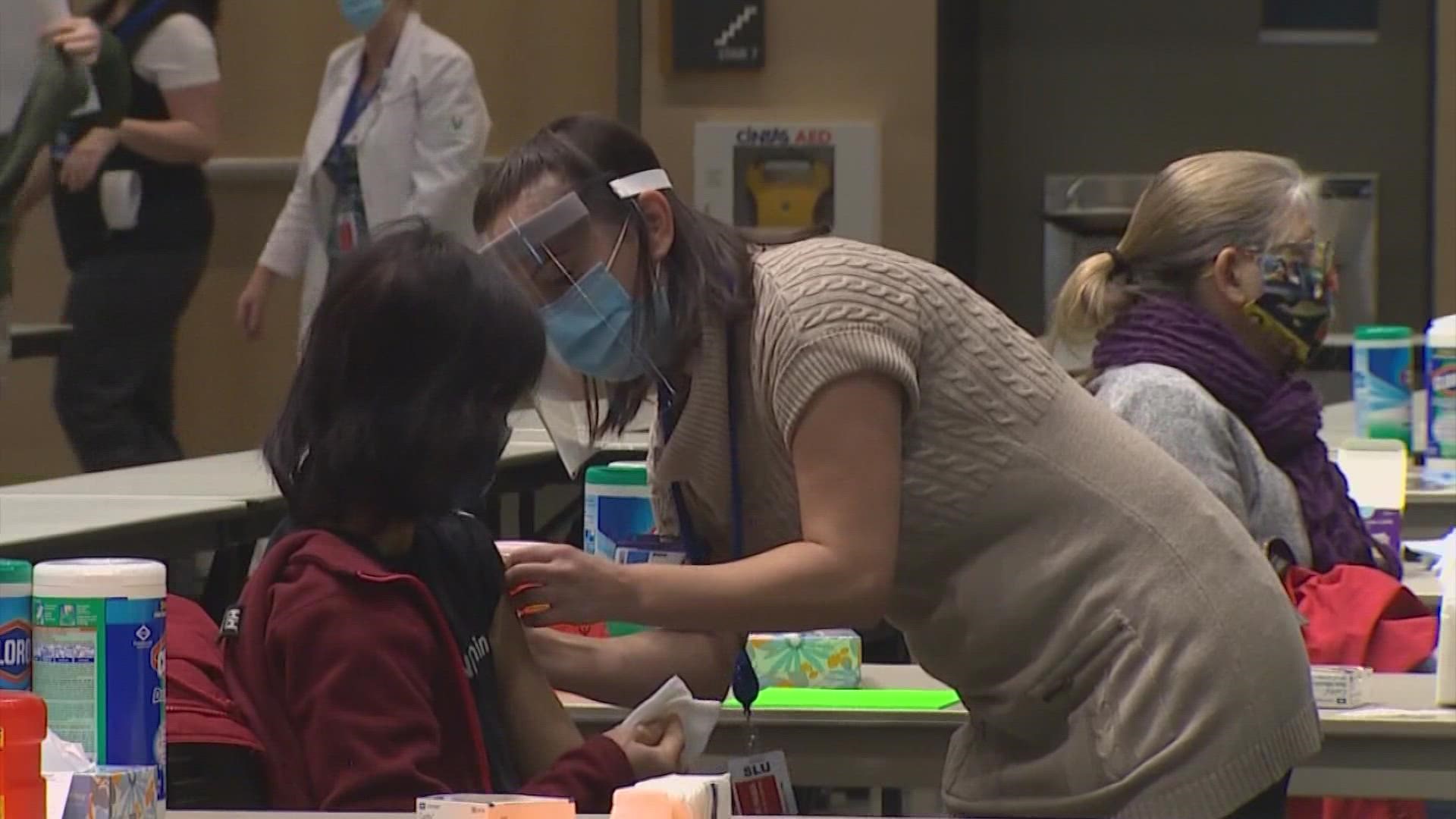SEATTLE — As the U.S. moves a step closer to expanding COVID-19 vaccinations for millions more children between 5 and 11 years old, the City of Seattle is preparing for a surge in demand for the shots.
Starting Friday, Oct. 29, a COVID-19 vaccine clinic at the Neighborhood House located at 6400 Sylvan Way SW in West Seattle will open. The site will be open Friday and Saturday from 11 a.m. to 7 p.m.
The clinic is making the final preparations to accommodate children to be vaccinated. The clinic will also provide extra capacity for adults seeking their booster shots, or for anyone who has yet to be vaccinated.
"This is a really important day for us to set up these vaccination sites to be close to communities and make it easy for people. They can register online or they can just walk in," Seattle Mayor Jenny Durkan said Tuesday.
Seattle plans to reopen vaccine clinics around the city as demand is expected to increase. Last weekend, the clinic at the Amazon Meeting Center in South Lake Union reopened. The Rainier Beach site is expected to reopen next month.
“We’re watching the numbers fairly carefully, to see where are we lacking and not just in the first and second doses, but the third dose, and working with public health and the Department of Health. We think that the health care base of vaccination is working, but the health care gaps are in those communities,” Durkan said.
The Neighborhood House clinic in West Seattle is capable of offering 800 shots a day to start and it's expected to expand. People can walk-up, but reservations are recommended.
Learn more about where to access vaccines in Seattle here.
On Tuesday, a Food and Drug Administration (FDA) advisory panel voted unanimously, with one abstention, that the benefits of Pfizer's COVID-19 vaccine in preventing the virus in 5- to 11-year-olds outweigh any potential risks — including a heart-related side effect that's been rare in teens and young adults despite their use of a much higher shot dose.
The FDA isn’t bound by the panel’s recommendation and is expected to make its own decision within days.
If the FDA authorizes the kid-size doses, there’s still another step: Next week, the Centers for Disease Control and Prevention will have to decide whether to recommend the shots and which youngsters should get them.
-----
The Associated Press contributed to this report.

